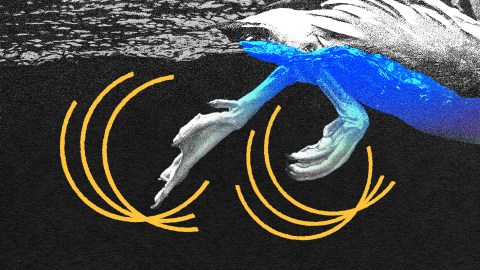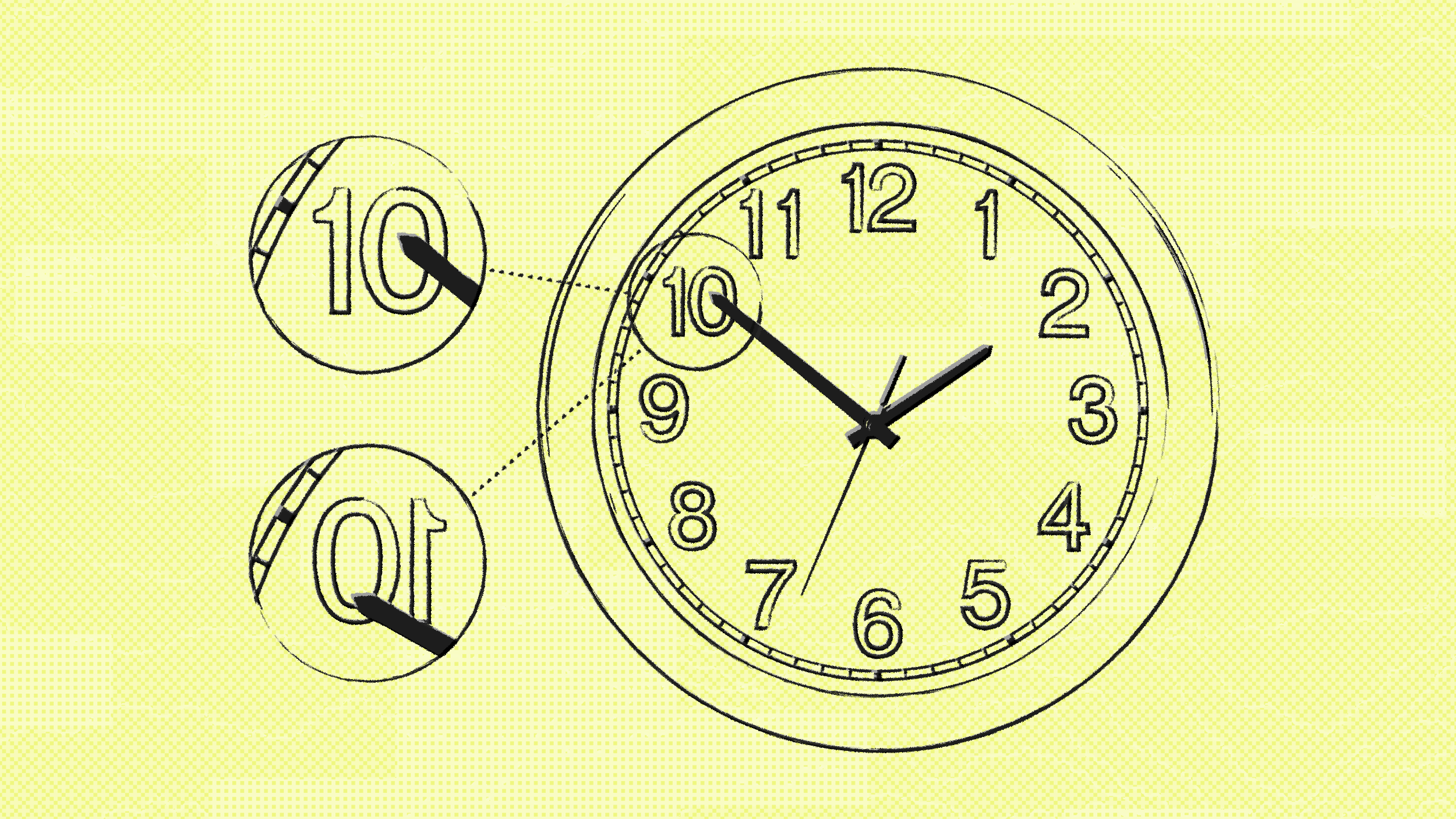Stanford duck syndrome: How the myth of effortless genius hurts learning

- Research shows that like a muscle, our brains really do get “stronger” through effort and hard work.
- When people work hard to learn something new, they develop more neural connections between different brain regions.
- Recognizing effective effort can increase motivation and help people overcome challenges, argues Mary C. Murphy in her 2024 book Cultures of Growth.
Just like a muscle, our brain gets stronger through hard work. The idea sounds catchy, but is it true? After all, our brain isn’t a muscle — it’s far more complex.
Hoping to answer this question, a group of researchers placed study participants in an fMRI machine, then monitored their brain activity while they listened to two tones. Their task was to press a button to indicate whether the second tone was longer or shorter in duration than the first. In the “easy” portion of the test, the tones were more clearly differentiated, whereas in the “difficult” portion, the second tone was more like the first. As the researchers dialed up the difficulty, the participants’ brains began to light up: The more challenging the task was and the more effort it required, the more areas of the brain were recruited to help.
Not only was there more activity and connectivity among different parts of the brain during the challenging task, one of the areas that came online during the hard part was the dorsolateral prefrontal cortex. This part is associated with higher-level executive functions such as our working memory, ability to switch between multiple concepts, and abstract reasoning. The more we’re challenged, the more parts of the brain we call on to help us and that, in essence, increases our overall abilities to meet the goal.
Research also shows that it’s not just any effort that makes us grow new neural cells and pathways, but effort expended in the process of learning — something we call effective effort.
Scientists compared the brains of two groups of “gym rats,” which were put on different physical exercise regimens, with a control group of “cage potato” rats and a group of “acro-rats” who learned to navigate an elevated obstacle course — a task that was mentally, but not physically, challenging. Though both groups of gym rats developed a higher density of blood vessels in their brains than the cage potatoes, the acro-rats developed more synapses per nerve cell than all three other groups. When we’re working hard and learning something new, we develop more connections among different parts of our brain, and that helps us complete tasks more quickly and easily in the future.
The neural pathways we don’t use die off over time. What makes our brains hold on to these pathways — and create more — is not simply repeating the same things we’ve learned over and over again, but continually taking on difficult problems. Just like exercising our muscles or our cardiovascular system, once we’ve got something down so well that we can perform it with little effort, it may boost our ego, but it won’t boost our performance. We’ve got to keep dialing up the level of challenge.
When we’re working hard and learning something new, we develop more connections among different parts of our brain.
Mary C. Murphy
If you’ve heard the advice that the way to keep your brain sharp is to tackle Sudoku or the New York Times crossword puzzle, those activities may serve you up to a point, but only so long as they remain challenging. Spending an afternoon with a Rubik’s cube would make my brain grow (and make me grow plenty frustrated), but not so for mathematician and data scientist Cathy O’Neil, who’s been solving them since she was 14. Neuroscientist David Eagleman says that in order to keep his brain healthy, he constantly invests in challenging activities, such as learning new software programs and wrestling with Mandarin.
Yet if multiple avenues of scientific exploration tell us that it’s only by engaging in challenging tasks that we develop and grow, why does the belief that having to apply more effort means less ability persist? What’s keeping it going?
Fueling false beliefs about effort and ability
You might be familiar with some version of the widely acknowledged “Stanford duck syndrome” — something I experienced personally in grad school. To be successful in the elite, high-pressure educational environment of Stanford, you were expected to glide gracefully across the water, though, beneath the surface, you were kicking like crazy to keep up. Hardship and struggle were expected to simply roll off your back.
In the day-to-day, undergrads, in particular, could be seen lounging around the student union or coffee shops, listening to music or socializing as if they didn’t have a care in the world. No one seemed to have to try hard to make it. By evening, they would begin to hit the books, sometimes studying alone in their rooms through the night in an effort to, well, hide their effort. The price they paid to align themselves with the cultural value of genius was a high one: Exhaustion and psychological distress were common.
Fellow researchers and I saw something similar at Cornell University. Through a series of focus groups with students, Cornell Health Counseling and Psychological Services counselors identified an unusual and disturbing trend. As is typical at many colleges and universities, companies selling a variety of dorm room posters — everything from puppies to popular bands — would come on campus to peddle their wares. During the most challenging times of the semester, such as during midterm and final exams, the most popular poster was one that was supposed to be motivational. It read, essentially, While you’re sleeping, someone else is getting ahead.
One could argue that the posters simply encouraged the students to dig in and work hard. When such “motivation” links to a cultural belief system where hard work is thought to signal low ability or talent, it can fuel mental health issues.

These beliefs tend to start young. Kindergarten through sixth-grade teachers attending our summer institute often describe how difficult it is to counter children’s perceptions that if they have to try hard at something, it means they’re not good at it. The teachers, themselves, sometimes harbor these same beliefs. One of the ways we see this is when teachers take our baseline evaluation survey and they give an affirmative response to statements such as, I hate to see my students struggle; Seeing my students struggle makes me uncomfortable; and I am likely to assist right away when I notice my students struggling. However, struggle is a critical element of the learning process.
The idea of errorless learning — the perception that fewer errors on tests means better learning — leads one to assume that getting answers wrong would have a negative impact. In fact, the opposite is true; when we get a question wrong, we’re actually more likely to get it right in the future if we take the time to struggle with it afterward. Struggle enhances learning and recall.
Still, we don’t want to blindly encourage all struggle, but instead emphasize strategies that enable effective effort. It’s critical that we praise effort in the right direction. Research further clarifies that the effectiveness of what we refer to as effort praise is tied to our beliefs about effort and ability. Among students who believe that effort is an important way to increase their ability, having their effort praised boosted their views of themselves and their levels of intrinsic motivation. The stronger their belief, the bigger the boost.





